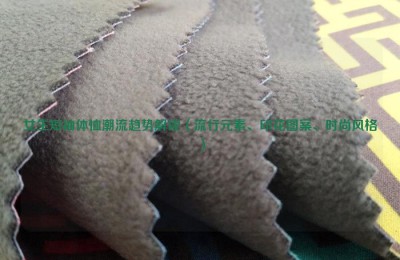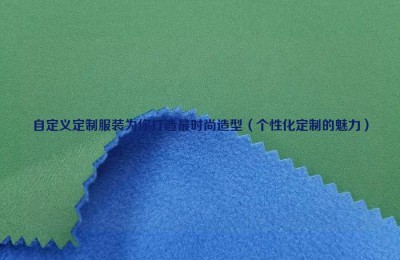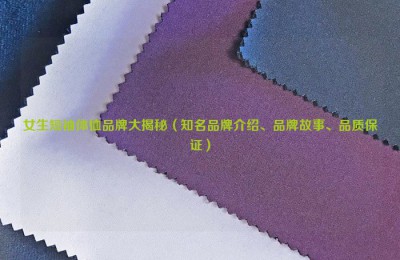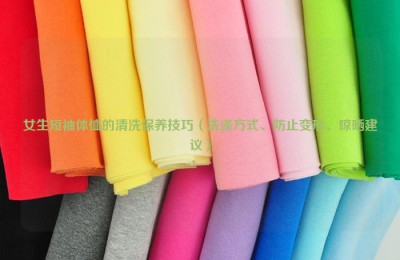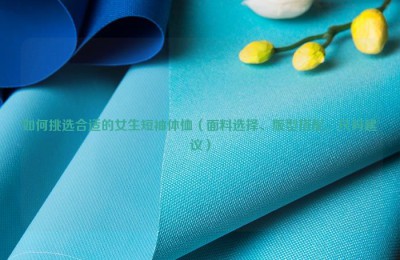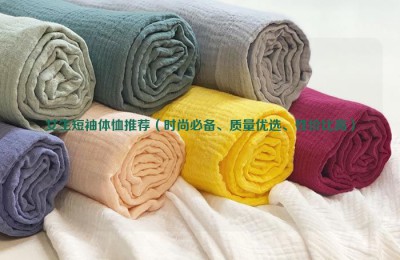In 2021, China’s knitting industry will adhere to the guidance of Xi Jinping Thought on Socialism with Chinese Characteristics for a New Era and the industry’s “14th Five-Year Plan” as the guide. It will be proactive and take multiple measures around “technology, fashion, and green”. Simultaneously promote the highquality development of the industry. Under a series of unfavorable factors such as repeated local epidemics in China, dual control of energy consumption, severe epidemics abroad, intensified international trade frictions, and high prices of raw materials and shipping, the knitting industry has innovated, changed, and forged ahead, ensuring the industry’s stable and positive development. trend.
From January to September 2021, 5809 regulated enterprises in the knitting industry completed main business income of 472.138 billion yuan, a year-on-year increase of 17.64%, and an average growth of 1.52% in two years; total profits were 17.952 billion yuan, a year-on-year increase of 9.1%; profit margin 3.8%, an increase of 0.08 percentage points from the first half of the year, and continued to rebound; the industry’s loss rate was 20.45%, a decrease of 3.38 percentage points from the first half of the year, the loss rate continued to narrow, and profitability gradually recovered. However, since the third quarter, the growth rate of main business income and total profit has been slowing down month by month, and the pressure on industry operation still exists. In particular, the price of upstream raw materials has risen rapidly, and it is difficult to transmit costs to downstream, squeezing the profit margin of enterprises.
Technological innovation
Promote green and sustainable development of the industry
From May 24 to 26, 2021, the China Knitting Industry Association held the second enlarged meeting of the seventh executive directors of the China Knitting Association and the 11th National Knitting Technology Conference in Shengze, Jiangsu. At the same time, the annual meeting of theWarp Knitting branch was held.
With the theme of “Integrated Innovation to Promote Sustainable Development”, the conference focuses on technological innovation, green development, and intelligent manufacturing. It invites experts, scholars, and business representatives to discuss topics in the industry. Scientific and technological achievements and cases in terms of new materials, new technologies, new processes, new models, etc. were introduced, advocating that enterprises incorporate green development concepts and social responsibilities into brand strategies and Product life cycle management, accelerating the digital transformation of enterprises, and adhering to the path of green and high-quality development. At the meeting, the “Thirteenth Five-Year Plan” Excellent Scientific and Technological Innovation Enterprises in China’s Knitting Industry and the 2021 “Catalogue of Advanced Technology and Equipment in China’s Knitting Industry” were released.
The annual meeting of the warp knitting branch held at the same time elected a new council of the warp knitting branch, and announced the top 10 enterprises in China’s warp knitting industry in 2020, the outstanding suppliers of China’s warp knitting industry during the “13th Five-Year Plan”, China’s warp knitting industry createsnew products during the “Thirteenth Five-Year Plan”.
In addition, the industry also launched the application process for the “Textile Light” 2021 China Textile Industry Federation Knitted Innovative Underwear Contribution Award, and 9 projects were awarded after expert review “Light of Textile” China Textile Industry Federation Knitted Underwear Innovation Contribution Award. The selected award-winning projects collectively represent the knitted underwear industry’s application and functionality of equipmentintelligent, environmental protection and sustainable technology Innovations in knitted product development, industry standards and quality construction.
It is worth mentioning that in order to strengthen the support capabilities of scientific and technological innovation, establish an innovation collaboration mechanism, and build an academic exchange, technological innovation and industrialization service platform for the upstream and downstream industries, the China Knitting Industry Association established the China Knitted Product Innovation R&D Alliance.
On December 10, 2021, the second council of the seventh session of the China Acupuncture Association and the third enlarged meeting of the executive directors were held in Liaoyuan, Jilin. With the theme of “Collaborative Innovation, Joint Promotion of Development”, the conference invited experts and scholars to systematically elaborate on the impact of “carbon peaking and carbon neutrality” on the industry and action suggestions based on the association’s annual report, and guide the industry to establish a green and sustainable development concept. .
Promoting trade through exhibition
Helping the dual circulation inside and outside the industry
According to customs confirmed statistics, from January to September 2021, my country’s exports of knitted fabrics (Chapter 60 knitted fabrics and crocheted fabrics) and knitted clothing and accessories (Chapter 61 Knitted or crocheted garments and accessories) totaled US$78.012 billion, a year-on-year increase of 41.9%. The growth rate slowed down 13.75 percentage points from the first half of the year, and the two-year average growth was 7.55%. Affected by the rebound in demand in the international market and the return of some orders, the industry’s exports have rebounded rapidly and have exceeded the pre-epidemic level, and export companies have recovered steadily.
From the perspective of export markets, the top five export regions in the knitting industry are the United States, EU, Association of Southeast Asian Nations, Japan, and the United Kingdom, accounting for 59.1% of exports; among them, Southeast Asia Growth is rapid, the United States is relatively stable, and the Japanese market is showing signs of decline. In the first three quarters, the total exports of the knitting industry to RCEP member countries were US$20.503 billion, accounting for 2.628% of the total exports, ranking firmly as the largest export region, with a year-on-year growth of 30.84%, and an average growth of 11.62% in the two years. After the agreement takes effect, it will inject new energy into the industry’s exports. motivation.
In terms of domestic sales, facing the huge pressure of repeated epidemics, China’s knitting industry has overcome many difficulties and held the spring and autumn PH Value China International Knitting Expo and China International Textile Yarn in Shanghai in March and October. Exhibitions provide smooth market channels for the industry.
Judging from domestic sales data, in the first three quarters of 2021, the number of clothing and shoes above designated size nationwideThe total retail sales of knitted textile products increased by 20.6% year-on-year, and the growth rate rebounded by 33 percentage points from the same period in the first half of the year, with an average growth of 2.8% in the two years. Online consumption continues to play a role in stimulating the domestic demand market. In the first three quarters, national online retail sales of clothing products increased by 15.6% year-on-year, a growth rate that was 12.3 percentage points higher than the same period last year, and an average growth rate of 9.3% in the two years. Cultural confidence has increased, new consumption continues to evolve, national trends have become a national trend, and domestic brand consumption has risen strongly, driving the consumption structure to continue to upgrade.
Trend leader
Leading the fashionable development of the industry
In order to cultivate design strength and promote the improvement of the design level of the industry, the 6th “Puyuan Cup” PH Value Chinese Knitting Designer Competition was held. Compared with previous competitions, this competition has two outstanding features: First, the design works are more international and diversified. The competition received a total of 2,343 valid works from 221 colleges and universities and design institutions in 8 countries and regions, including China, Japan, South Korea, Thailand, the United States, and the United Kingdom. The second is to add a new professional group. Design works pay more attention to the combination of market creativity and commercial characteristics, entering a new stage of integrated development from “creative design” to “design marketization”.
China’s knitting yarn Fashion Trends is a major practical measure to promote the overall design level of the industry. It brings together the top scientific research institutions, production institutions and experts in color in the knitting industry. , printing and dyeing, functionality, and application diversity, it uses patterns and ready-made garments as carriers to present the diversity and design of yarns in flat knitting machines. It aims to achieve an organic combination of upstream and downstream knitting, inspire designers’ creative inspiration, provide enterprises and designers with available design materials, and promote innovation at the source of fashion in the industry.
In 2021, the China Knitting Industry Association and Zhuji Datang Street jointly released the seventh China Socks Industry Fashion Trends, continuing to lead the unification of sock industry design and clothing fashion. The basic system of trend research has been continuously enriched and expanded, becoming an important support for leading the fashion development of the knitting industry.
Looking forward to 2022, the external environment is still complex, but the knitting industry has stable, efficient, and high-quality manufacturing advantages. The domestic macroeconomic foundation continues to consolidate, which will support the steady growth of the domestic demand market. The holding of the Winter Olympics and the rise of the national trend will further Stimulate consumption vitality. The entry into force of the RCEP agreement will inject new impetus into my country’s exports. As the low base effect gradually fades, the industry will return to the track of normalized recovery in 2022 with low-speed economic growth and continued in-depth transformation and upgrading.
AAAJH. LK‘PO[IUYUKT

